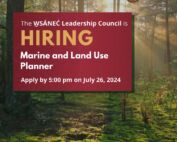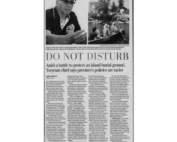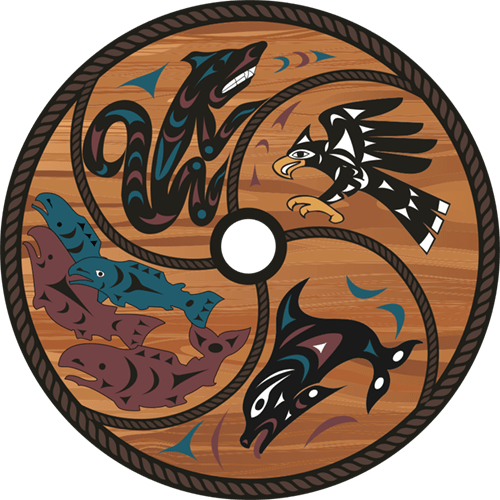The WLC is pleased to welcome Kevin Paul to the team!
Learn more about Kevin Paul and how he will help fulfill the W̱SÁNEĆ Leadership Council’s mandate. Click play to view the short interview, or read the transcript below.
Interviewer: Can you tell us your name and where you’re from?
Hi, my name’s Philip, Kevin Paul. I live on the W̱JOȽEȽP side of W̱SÁNEĆ.
My father was the late Philip Christopher Paul, co-founder of the Union of BC Indian Chiefs and co-founder of the National Indian Brotherhood, which is now the AFN. My mother was Frances Elliott, who was as wise and beautiful as my father.
I go by Kevin because my dad didn’t want a junior. In his words, he didn’t want there to be anyone who had to live up to or live down to his name. And when he said that he really meant it because when he was a young man, he drank heavily and his name wasn’t well thought of. When he became sober and a leader, he made a large impact on natives, across Canada.
Interviewer: Can you tell us a bit about your work experience and education?
My education: I graduated high school, went to the University transfer program at Camosun College and graduated with my Bachelor’s at the University of Victoria and went on to do my Masters. My undergrad was a double major in English and writing. I was the very first writing student at UVIC to get a Master’s Degree in fine arts for writing.
I worked as a waiter for a long time and have a love for really good restaurants. As a young guy, being a server was my favorite thing. I was an amateur boxer competing at a very high level. I was also a rugby player. Other work experience, related to the work I’m doing now, I was the SENĆOŦEN and English instructor at the adult education center here in W̱JOȽEȽP.
After that I started as the literacy teacher. My oldest student was 82 and my youngest was 19. After that was done, I taught at the university of Victoria in the writing and linguistics department, as well as occasionally in the English department.
While I was doing my master studies I also taught four classes in the writing department. After that I was hired for more work and taught many classes through UVIC, Comosun, and I was writer in residence at many universities across Canada. That more or less lands me here in the W̱SÁNEĆ leadership council as the laws writer, trying to re-lay the foundation of what W̱SÁNEĆ people are and what we’re trying to be.
Interviewer: Can you tell us more about what you’ll be doing in this role and what you hope to accomplish?
My role at this point is a little bit unclear. In the beginning they wanted me to write laws. Write down the laws, speak with the elders, have them talk about our laws, but very quickly that process became abstract. So what I started doing, because I had at the same time a contract with what used to be called the Saanich Indian school board but is now called the W̱SÁNEĆ school board. I was hired there to help translate the traditional stories that have been taped, but haven’t yet been transcribed in English or in SENĆOŦEN.
So you get them [the stories] out of spoken SENĆOŦEN into written SENĆOŦEN and translate them into English. Once they’re translated the SENĆOŦEN versions are all very truncated and come across more like summaries of our stories. And so then my job was to breathe some life back in them while keeping the heart of W̱SÁNEĆ in them. And so I asked the elders if they would help me with that, I would bring them SENĆOŦEN transcriptions that they would help me get it into English. Then I would bring them back my English rewritten version, which was longer, we would edit the English version, and then we bring it back to the elders and we put them back into SENĆOŦEN. What happened through that is I found out that the more we were talking about specific Saanich stuff like that, they would start talking a lot.
Now we have names for the laws and SENĆOŦEN articulation and W̱SÁNEĆ translation. This is what’s become my work right now, is the stories, talking to the elders and while they start talking to each other and ignoring me, I write down what they’re saying.
What I want more than anything else when dealing with my elders is their trust, and for them to feel that they’re in good hands when they speak to me. So having people feel that safe around me and be that trusting of me is really important and feels really special.
Interviewer:What kind of impact do you hope to have with this work?
I wouldn’t mind building an irresistible precedent of how cultures can move comfortably from orality to literacy, and how people can actually rebuild from what we know to be the people we already are. They know more about what it is to be a Saanich person than they know.
Interviewer: if you’re not working, what are you doing?
I used to play in a band and I like to write songs and stuff, but I haven’t played for years. I was starting to play again. I suffere from depression and anxiety. I lost my parents at age 21 and age 26, and that’s when those struggles came on. They kind of brought an end to my boxing days. I kept boxing until I was 33, but the spirit in me was gone. So having just come out of a recent depression, you know, a breakup, my dog died, and then COVID hit and I just sunk in depression. So I don’t know what I do these days. And the thing to remember is not to be too hard on yourself about that stuff.
It’s like I tell them when I sit with them, because I have sat with depressed youth and spoke with them and usually lots of their depression comes from social anxieties. I say the thing to remember about this kind of depression is that all those people have on you, is an opinion. That’s all. But the other thing to remember is all you have on yourself about yourself is an opinion. So whatever you’re telling yourself about you, might be untrue. That’s usually my opening dialogue with these young people who are sent here by their parents to talk to me.
Very early on I was a person who talked very openly about depression, about anxiety, and all my family knew this about me, that I was depressed. Because I didn’t hide it, and I spoke about it. And it just brought me better treatment from my family, more understanding treatment. Like what’s Kevin doing? He’s got all these talents, what’s he doing with it? You know, does he ever come outta the house? They weren’t like that anymore. They were bringing me food. They were picking me up to drive down to dinners at their houses. You know, it was a wonderful time in life that could have otherwise been quite disastrous. [And I certainly did have some troubled and troubling days.]






